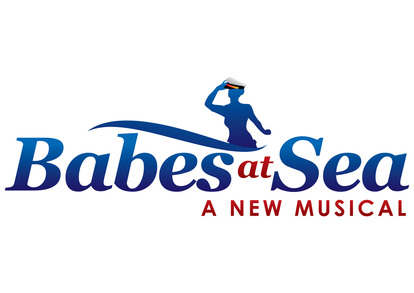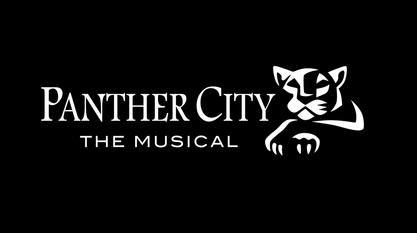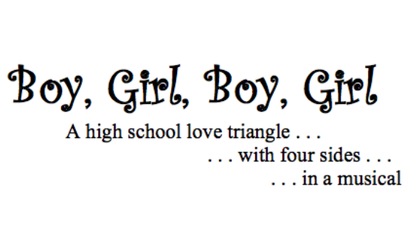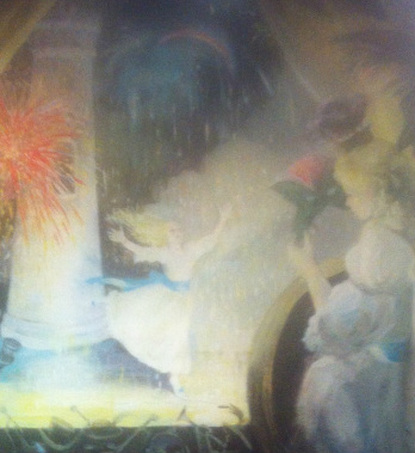Attended Session 2 of the ASCAP Musical Theater Workshop last night. Great time with me, Stephen Schwartz . . . and about 80 other people!
I've attended this workshop six of the past seven years, and it was one of the most beneficial nights I've spent there in a long time. Why?
First, it was just an encouraging, gratifying two and half hours. I plopped down in a seat next to Michael Diton-Edwards, who had come in from Indiana. He could have been me in 2006, my first year of attendance, when I came in from Texas. Like me, Michael came later in life to a passion for writing musical theater. Like me, schmoozing does not come easily to him. Like me, he's writing for a family-friendly audience. And, like me, he made a new friend at ASCAP. Sitting on the other side of me was Tom Hyndman, a writer from D.C. Tom and I are good friends and collaborators now, but we met at the 2007 workshop. (Watch this space for news of something we're working on together--a work of his we're going to try to get ready for production--which I think has a lot of potential.) All of the above is to say, "Go to events like this whenever you can." Doesn't matter if you're new to the endeavor, don't like crowds, don't feel you "know" enough. Come on. You'll meet people about where you are in the process or ahead of you, and you'll learn. (If there's not some kind of musical theater writer networking where you are . . . start it! In fact, they are starting one in the Midwest. Michael Kerker is ASCAP's musical theater guy, a wonderful gentleman and the best friend of new musical theater writers. He knows everyone can't come to New York or L.A., so keep looking here for details.)
Second, the night was good because the panel was great. ASCAP works this way, Stephen Schwartz (Wicked, Pippin, Godspell, Pocahontas on and on and on . . .) brings in two friends from the industry. Then, a writer, previously chosen, presents 50 consecutive minutes of a new work in a reading format followed by a critique from the panel. The audience gets to be a fly on the wall in a what essentially is a master class on musical theater craft.
The panel last night was Stephen and the writing team of Benj Pasek and Justin Paul (A Christmas Story, Dog Fight). They are young and were refreshingly nervous about critiquing others . . . then delivered an outstanding critique.
The encouraging part for me was advice from Stephen to Kevin Samuel Lee, who wrote An Asian American Basketball Musical. Kevin, a triple threat performer, is very new to writing--this was his first musical. And he more or less backed into his composing process, which is to take the germ of a melody that comes to him, develop it in his head, on the guitar or plunking it out on the piano, then get help with arrangements. After detailing this to the panel, he asked them, "What's your process?" In other words, "What's the 'right' process that professionals use?" And Stephen jumped right in and said, "Look, I would be very reluctant to ask that. Your process is your process. You sort of apologize for it, but you have talent, it's raw now, but you clearly know how to put a song together. I would do the process that works for you."
Boy, that was encouraging. Being musically limited, I am what composer/lyricist/author Dvid Spencer derisively calls a "Hummer." I create in my head, sing into an iPhone, plunk out the melody line and then get help. (Small World of Musicals: One of my main helpers is the wonderful Michael Borth, whose amazingly talented wife, Lindsay Mendez, starred in Justin and Benj's Dogfight.) There is a humility and graciousness in Stephen's statement: Your process is your process. (By the way, Stephen literally mentored Justin and Benj into the business because at a networking event they handed him a CD of a song cylce they had written in college and he critiqued it.)
But I also learned one thing that will really help me as a writer. Justin and Benj (and Stephen) talked about the importance of music reflecting or emphasizing the tone of the song. Stephen cited Craig Carnelia's song Joe from Working. "If I didn't understand a word of English," Stephen said, "I would know everything this song is about from the music." That challenges me to be much more intentional in my songwriting process to take the germ of an idea and ensure the melody, the tempo, the key and the arrangement reflect the tone of the song at that place in the show. It's another way of adding subtext, of communicating without spelling it out. (I feel like Good-Bye, Cleveland from my musical Babes at Sea does this, but I don't know that I knew I was doing it.)
And now, on to a similar event tomorrow morning that Stephen Schwartz biographer Carol de Giere has arranged . . . I'm on the panel this time! Yikes.
OK. That's it, and that's enough.
I've attended this workshop six of the past seven years, and it was one of the most beneficial nights I've spent there in a long time. Why?
First, it was just an encouraging, gratifying two and half hours. I plopped down in a seat next to Michael Diton-Edwards, who had come in from Indiana. He could have been me in 2006, my first year of attendance, when I came in from Texas. Like me, Michael came later in life to a passion for writing musical theater. Like me, schmoozing does not come easily to him. Like me, he's writing for a family-friendly audience. And, like me, he made a new friend at ASCAP. Sitting on the other side of me was Tom Hyndman, a writer from D.C. Tom and I are good friends and collaborators now, but we met at the 2007 workshop. (Watch this space for news of something we're working on together--a work of his we're going to try to get ready for production--which I think has a lot of potential.) All of the above is to say, "Go to events like this whenever you can." Doesn't matter if you're new to the endeavor, don't like crowds, don't feel you "know" enough. Come on. You'll meet people about where you are in the process or ahead of you, and you'll learn. (If there's not some kind of musical theater writer networking where you are . . . start it! In fact, they are starting one in the Midwest. Michael Kerker is ASCAP's musical theater guy, a wonderful gentleman and the best friend of new musical theater writers. He knows everyone can't come to New York or L.A., so keep looking here for details.)
Second, the night was good because the panel was great. ASCAP works this way, Stephen Schwartz (Wicked, Pippin, Godspell, Pocahontas on and on and on . . .) brings in two friends from the industry. Then, a writer, previously chosen, presents 50 consecutive minutes of a new work in a reading format followed by a critique from the panel. The audience gets to be a fly on the wall in a what essentially is a master class on musical theater craft.
The panel last night was Stephen and the writing team of Benj Pasek and Justin Paul (A Christmas Story, Dog Fight). They are young and were refreshingly nervous about critiquing others . . . then delivered an outstanding critique.
The encouraging part for me was advice from Stephen to Kevin Samuel Lee, who wrote An Asian American Basketball Musical. Kevin, a triple threat performer, is very new to writing--this was his first musical. And he more or less backed into his composing process, which is to take the germ of a melody that comes to him, develop it in his head, on the guitar or plunking it out on the piano, then get help with arrangements. After detailing this to the panel, he asked them, "What's your process?" In other words, "What's the 'right' process that professionals use?" And Stephen jumped right in and said, "Look, I would be very reluctant to ask that. Your process is your process. You sort of apologize for it, but you have talent, it's raw now, but you clearly know how to put a song together. I would do the process that works for you."
Boy, that was encouraging. Being musically limited, I am what composer/lyricist/author Dvid Spencer derisively calls a "Hummer." I create in my head, sing into an iPhone, plunk out the melody line and then get help. (Small World of Musicals: One of my main helpers is the wonderful Michael Borth, whose amazingly talented wife, Lindsay Mendez, starred in Justin and Benj's Dogfight.) There is a humility and graciousness in Stephen's statement: Your process is your process. (By the way, Stephen literally mentored Justin and Benj into the business because at a networking event they handed him a CD of a song cylce they had written in college and he critiqued it.)
But I also learned one thing that will really help me as a writer. Justin and Benj (and Stephen) talked about the importance of music reflecting or emphasizing the tone of the song. Stephen cited Craig Carnelia's song Joe from Working. "If I didn't understand a word of English," Stephen said, "I would know everything this song is about from the music." That challenges me to be much more intentional in my songwriting process to take the germ of an idea and ensure the melody, the tempo, the key and the arrangement reflect the tone of the song at that place in the show. It's another way of adding subtext, of communicating without spelling it out. (I feel like Good-Bye, Cleveland from my musical Babes at Sea does this, but I don't know that I knew I was doing it.)
And now, on to a similar event tomorrow morning that Stephen Schwartz biographer Carol de Giere has arranged . . . I'm on the panel this time! Yikes.
OK. That's it, and that's enough.
 RSS Feed
RSS Feed



